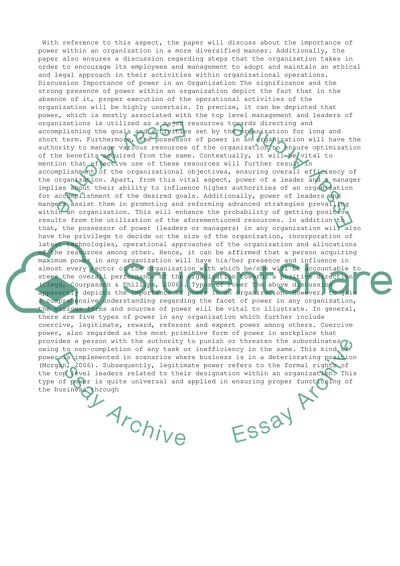Cite this document
(“Power in organizations Essay Example | Topics and Well Written Essays - 1250 words”, n.d.)
Power in organizations Essay Example | Topics and Well Written Essays - 1250 words. Retrieved from https://studentshare.org/business/1486524-power-in-organizations
Power in organizations Essay Example | Topics and Well Written Essays - 1250 words. Retrieved from https://studentshare.org/business/1486524-power-in-organizations
(Power in Organizations Essay Example | Topics and Well Written Essays - 1250 Words)
Power in Organizations Essay Example | Topics and Well Written Essays - 1250 Words. https://studentshare.org/business/1486524-power-in-organizations.
Power in Organizations Essay Example | Topics and Well Written Essays - 1250 Words. https://studentshare.org/business/1486524-power-in-organizations.
“Power in Organizations Essay Example | Topics and Well Written Essays - 1250 Words”, n.d. https://studentshare.org/business/1486524-power-in-organizations.


